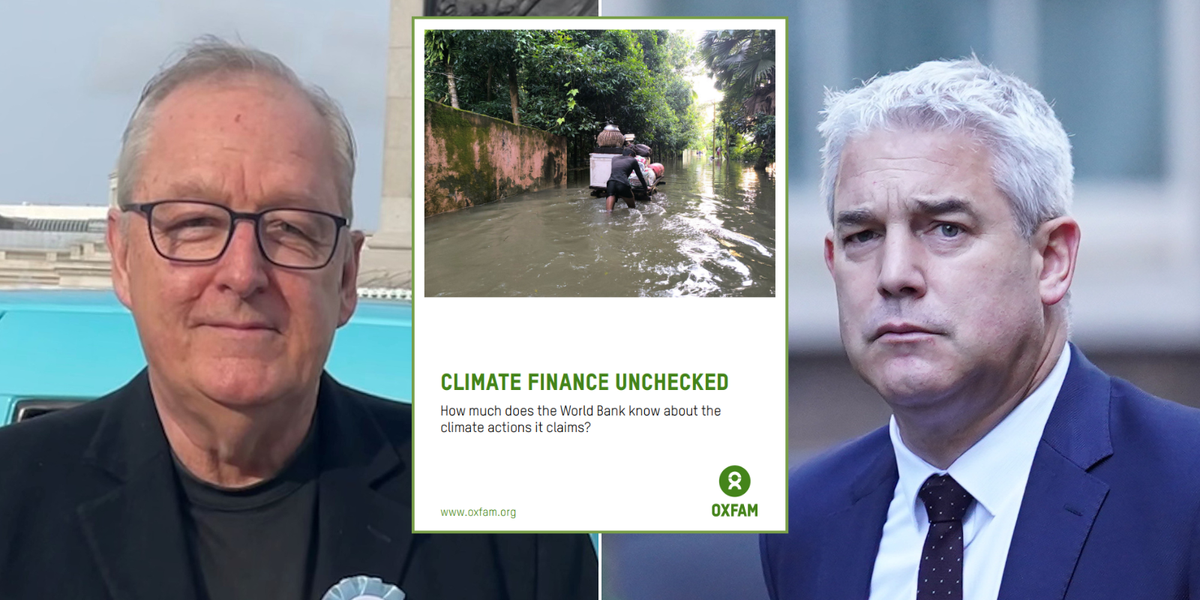The World Bank’s Climate Finance Crisis: A £31 Billion Mystery
A recent bombshell report has sent shockwaves through the international community, revealing that the World Bank’s management of climate change funds is in disarray. According to an audit conducted by Oxfam, a staggering £31 billion from donor countries, including the UK, appears to be unaccounted for. This amount represents nearly 40% of all climate change funds disbursed by the World Bank over the past seven years, raising serious questions about transparency and accountability in global climate finance.
The Audit Findings: A Breach of Trust
The Oxfam report, which scrutinizes the World Bank’s climate finance portfolio from 2017 to 2023, highlights a troubling lack of public records detailing how the funds were allocated and utilized. Chiara Liguori, Oxfam GB’s Senior Climate Justice Policy Advisor, emphasized the gravity of the situation, stating, “Not tracking how or where the money gets spent is not just some bureaucratic oversight; it’s a fundamental breach of trust.” This sentiment resonates deeply among MPs and campaigners who are increasingly concerned about the implications of such financial mismanagement.
Calls for Transparency from UK Officials
In response to the alarming findings, Conservative MP and Shadow Environment Secretary Steve Barclay voiced his concerns, stating that taxpayers in donor countries like Britain deserve transparency regarding the use of their contributions. “This is a huge sum, and British taxpayers have a right to know the money has been used in line with the commitments made,” he asserted. The World Bank, which is the largest multilateral provider of climate financing, accounts for 52% of the total flow from all multilateral development banks combined. As climate financing takes center stage at the upcoming UN Climate Summit in Azerbaijan, the stakes have never been higher.
The Broader Implications for Climate Finance
The Oxfam report comes at a critical juncture, as climate campaigners are urging wealthier nations to contribute a total of £4 trillion annually to help alleviate the debts of poorer countries. Ed Gemmell, leader of the Climate Party, criticized the World Bank’s handling of funds, labeling it “appalling” and warning that such mismanagement could erode trust among donor nations. He cautioned that countries may hesitate to send billions in climate finance to the World Bank if there is no accountability regarding the allocation of these funds.
The Risk of Redirected Funds
Gemmell further warned that the fallout from this report could lead to a shift in funding priorities. “In fact, this report may provide a boost—as money that would have been allocated to help developing nations adapt to climate change may now be redirected to nationally-focused Net Zero and renewable energy projects in Britain,” he stated. This potential redirection of funds raises concerns about the long-term impact on global climate initiatives, particularly in low-income countries that rely heavily on external support.
Criticism of the World Bank’s Management
The report has drawn sharp criticism from various stakeholders, including Howard Cox, founder of FairFuelUK, who condemned the World Bank’s “pure incompetence.” He expressed hope that the missing funds were merely the result of administrative errors rather than something more sinister. “Somehow, this incompetence will probably be ignored and brushed under the World Bank’s luxury carpet,” he lamented, highlighting the need for greater accountability in global financial institutions.
Conclusion: A Call for Accountability
As the world grapples with the urgent challenges posed by climate change, the revelations from Oxfam’s audit serve as a stark reminder of the importance of transparency and accountability in climate finance. With billions of pounds at stake, donor countries must demand answers from the World Bank and ensure that funds are used effectively to support developing nations in their fight against climate change. The upcoming UN Climate Summit in Azerbaijan will be a crucial platform for addressing these issues and negotiating new climate finance arrangements that prioritize accountability and trust. The time for action is now, and the world is watching.
